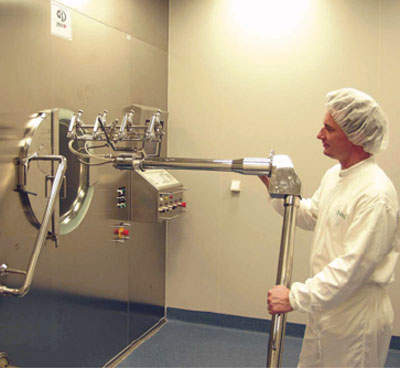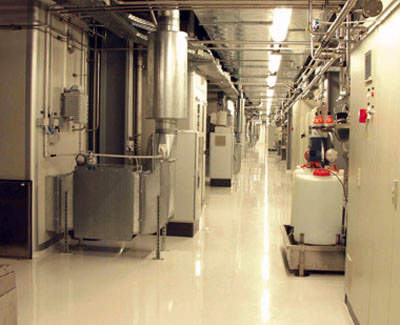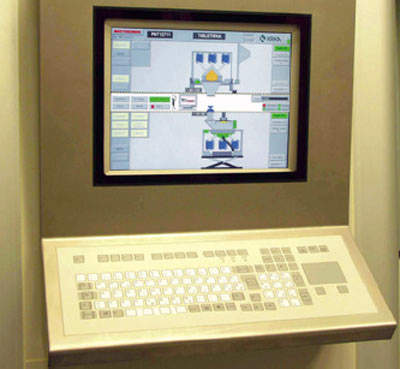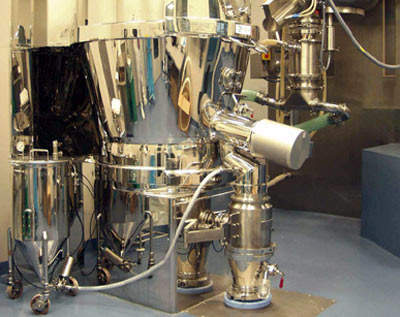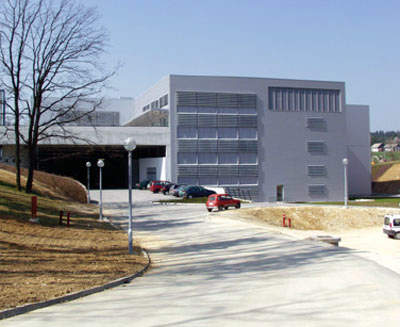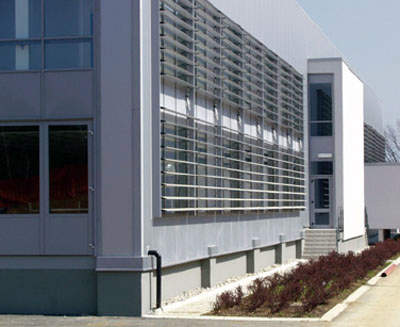Krka is a major pharmaceutical and chemical products supplier based in Novo Mesto in Southern Slovenia on the Krka River, operating since 1954. The company’s primary products are generic drugs for the pharmaceutical market but it also produces veterinary and cosmetic products.
To provide the basis for future competitiveness and expansion, Krka decided in the mid-1990s to build a modern manufacturing plant, called the Notol Plant, for the production of solid dosage forms.
The plant was constructed in three phases from 1998 to 2008 and involved an investment of €150m. Notol is an acronym of the Slovenian term ‘Novi Obrat Trdnih Oblik Locna’ (New Plant for the Solid Forms).
Construction
Construction of the 23,124m² plant began in 1998. The plant incorporated vertical flow of materials, automation of internal transport and the use of standard containers.
The new plant aimed to produce 2.5 billion tablets, coated tablets and capsules a year and optimise the flow between pure production and technical surfaces.
In 2003, the plant obtained permission from the Agency for Medicinal Products and Medicinal Devices of the Republic of Slovenia to produce drugs. Phase I of the project cost €15m.
Phase II began in 2004. It involved the addition of technical equipment to achieve 100% equipping of the plant. Pellet production capacity was also increased.
The third phase included construction of a facility for intermediate product and small-batch production for a fast and high-quality transfer of technology in development and production.
Six new packaging lines were added to the packaging facility, which increased the plant’s production capacity by 50–60%.
An automatic vertical storage system for packaging was also developed along with improvement of the plant’s transport system. Phase III cost approximately €51m.
The Notol plant consists of four interconnected buildings: a production building, an administrative-reception centre, a packaging building and a small batch production facility.
Production
Within the production building, which has five floors, a completely new concept for the production of semi-finished tablets, coated tablets and capsules has been implemented based on spatially and climatically separated areas.
Production islands are used together with individual docking stations, an automated internal transport between production islands, a vertical flow of material and the introduction of standard containers. Individual materials required for various production processes are provided from the upper floor, and material from different production islands is sent to the floor below for further transportation and processing.
The interface between production islands and technical rooms is implemented by feeding and receiving docking stations, offering both a clean and secure way to exchange material with the cleanrooms. The docking stations represent one of the most important innovations of the Notol plant.
The transportation of all processed material is carried out through automated guided vehicles (AGVs), which transport the materials in bulk bins.
Process and control systems
The manufacturing execution system (MES), together with the individual Scada systems and the complete logistic system are the key automation components of the Notol plant. The MES system supervises the intricacies of internal transports, weighing systems, dosing systems for granulation, tumbler, washing stations, weigh checks and mobile cleaning in place (CIP) units.
The integration of the Scada and MES systems is done so that they can work independently in case the MES system becomes unavailable. The purpose of the Scada and control systems of the individual production islands is to automate the material transfer in and out. There are also some additional tasks including dispensing, granulation and tableting.
A real-time user interface means the Scada systems can provide visualisation of equipment status, control of procedures, local error handling, interfaces to the MES and the controller. Scada systems are responsible for handling docking stations, production machines, CIP and DIP systems and also physical execution of production, reports, historical data, alarms and events.
Scada work-stations are the main systems for work issues. The final version of the Notol plant will eventually consist of 50 production islands and a total of about 80 iFIX Scada systems.
Operations
The most complex iFIX Scada application is the supervision of the central CIP station, which is the system responsible for preparing the CIP media and the refilling of the mobile CIP units. These units are self-contained systems, including vessels, valves, heaters and sensors as well as their own controller.
They are connected to a power supply, air supply and the local network while sitting on the docking stations and are battery operated while in transport.
All supervision of the mobile CIP and DIP units is delegated to the Scada system of the individual station, where the unit is currently located.
iFIX is also used for HVAC purposes and variables such as temperature, pressure and humidity are monitored in 510 rooms using three iFIX Scada servers.
Automation companies
The Notol plant uses GE Fanuc iFIX Scada systems and iHistorian for data collection and reporting. Metronik was the company responsible for the development and integration of the automation systems. GE Fanuc was also responsible for the development of all the HVAC systems.
Samo Somrak, the Krka department manager responsible for electrical engineering and automation, said: “The complete project has been more a research and development scheme rather than a standard project… Today, the results prove that we have taken the right steps… With the Notol plant, we have made a major step forward towards our future production.”

